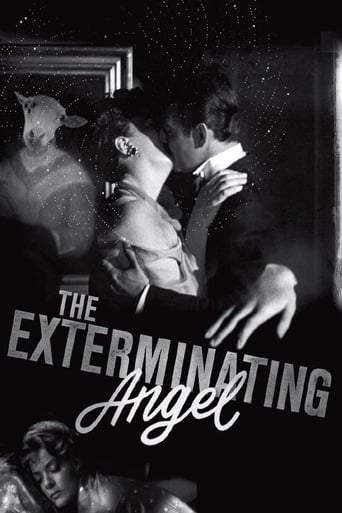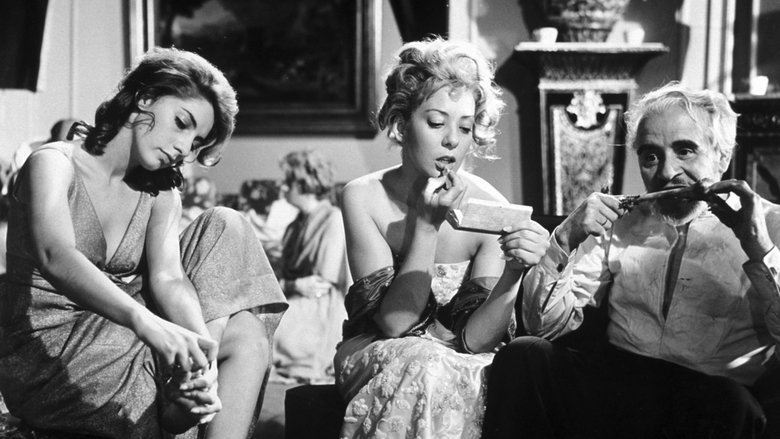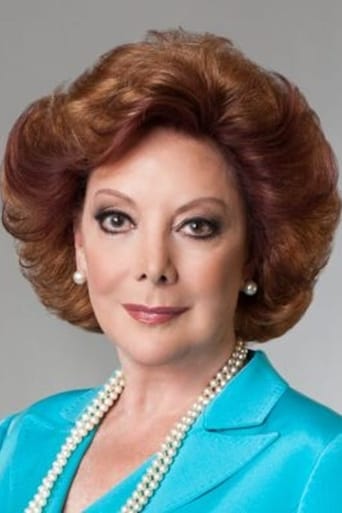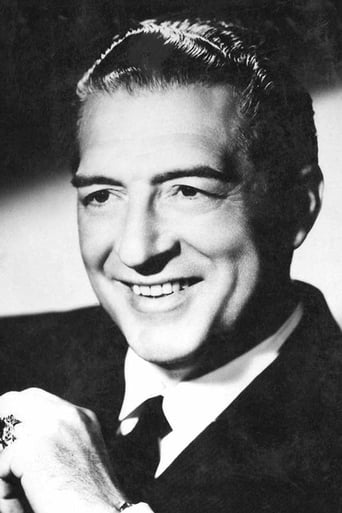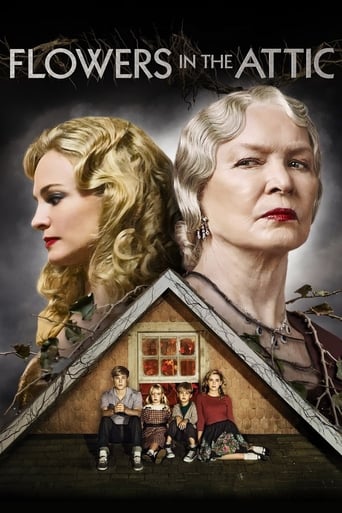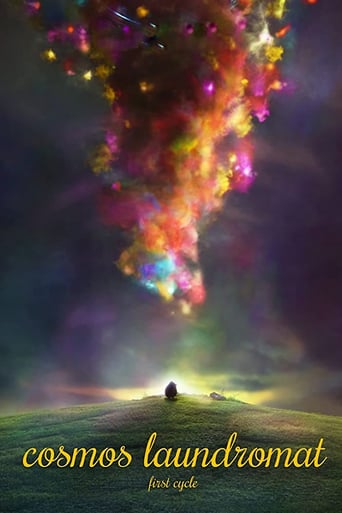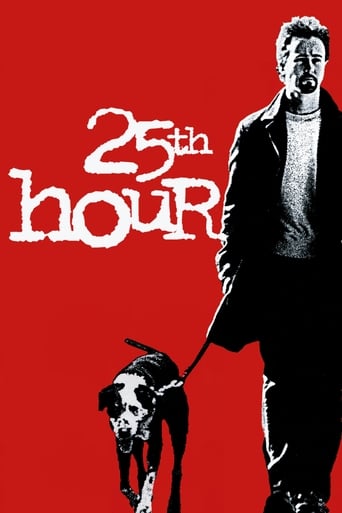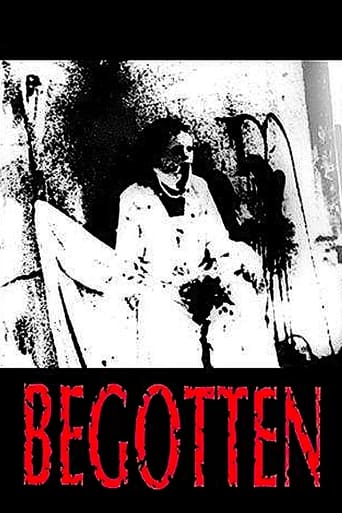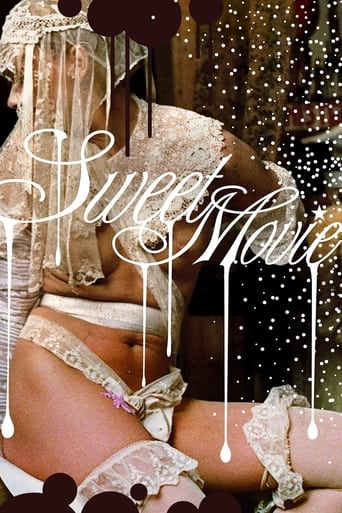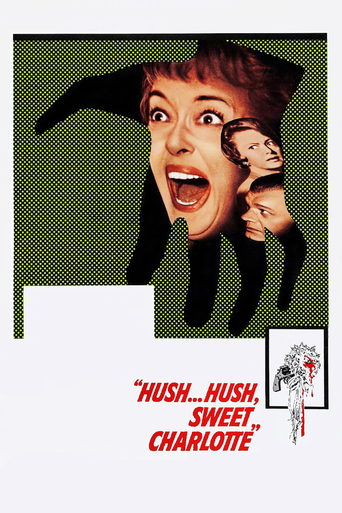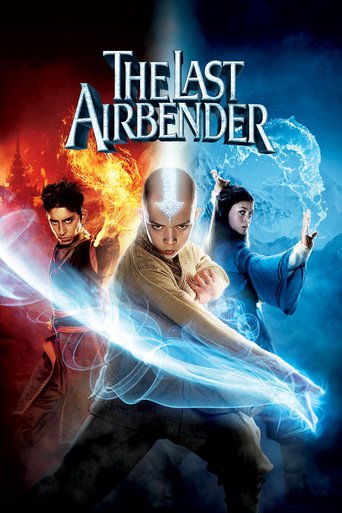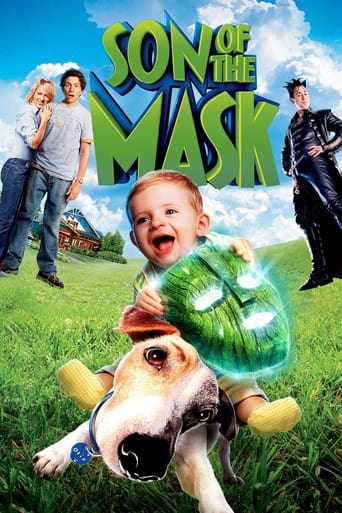The Exterminating Angel (1962)
After a lavish dinner party, the guests find themselves mysteriously unable to leave the room.
Watch Trailer
Free Trial Channels
Cast


Similar titles
Reviews
Awesome Movie
A bit overrated, but still an amazing film
Unshakable, witty and deeply felt, the film will be paying emotional dividends for a long, long time.
Story: It's very simple but honestly that is fine.
a satire. a bitter portrait of a too old reality. a parable. or only a story by Bunuel. like each of his films, a challenge. or more than one of challenges. because it represents more than a social critic. the motif - it is the story of contemporary realities more than one of the "60's. the isolation. the captivity, the need to return to old formulas for become, again, part of normal are traits of a film with virtue of warning. and this could be the cause for it remains, long time after you see, present in memory. as a dark picture of a world defined by fear and instinct.
Some movies by Luis Buñuel are at first sight an incongruous mixture of realistic, surrealistic, (anti)religious, sexual and dream elements. However, in his carefully concocted screenplays, no text, no image, no character, no sequence doesn't have a meaning, not always a logical one, but at least an associative one. Hereafter, a modest contribution to the many interpretations already published about 'The Exterminating Angel'. We should not forget that the screenplay of this movie is based on an unfinished play by José Bergamin, a catholic and Marxist.In 'Providence street' a group of upper class people (pars pro toto) gets trapped in a house after a dinner party given by the soprano Lucia after her performance as 'Lucia', the main role in the opera 'Lucia di Lammermoor' by G. Donizetti. The libretto of the opera, based on a novel by Walter Scott, contains a bad (forced) marriage, a mad scene, a ghost and a suicide, all elements used in the movie. Before the dinner party began, all members of the underclass (the servants) had left the house for all kinds of reasons, except the majordomo ('a clown'). At night, the guests don't want to leave the house and prefer to stay inside it during the whole night. In the morning, they find out that they are trapped inside. A journey into 'the disintegration of human dignity' begins. Without their servants, the upper class members are not capable of organizing a normal way of life. Their mansion doesn't become a paradise, despite the playing of a piano piece by Pietro Domenico 'Paradisi' and despite a cabalistic ritual, amulets (chicken feet) or even a Masonic cry. The inhabitants are confronted with other living 'symbols' inside the house: a bear (violence) and sheep (victims). The latter will be slaughtered in order to save the party members from starvation.The spell is broken when a party member can reconstruct the past, the beginning of the ordeal. They can turn the time back and leave their prison. Their liberation is celebrated with a 'Te Deum' mass. When they come out of the church, they see another spectacle: common people are shot down by their long arm, the police. The plebs is offering itself up to the existing powers like sheep, of which a long row enters the church in a holy procession. The opportunity of a power grab has been missed. The angel is still exterminating the underclasses.
THE EXTERMINATING ANGEL is a surrealist drama about a high class as social parasites, which are gathered in one place.After a visit to an opera, a group of fashionable people from high society has gathered at a party in a villa of a respected gentleman and his wife. However, their servants unaccountably leave their posts. The guests enjoy a luxurious and somewhat strange party. They notice, after dinner, that's all the servants gone, and that they can not get out of a music salon, even though all the doors and windows are open. The guests consume what little drinks and food are left from the previous night's party. Days pass, and their situation is complicated. They become hungry, thirsty, sick and hysterical...Mr. Buñuel has offered a strange display of human degradation, which has brought depression and hostility in a civil conflict. He has, through a surreal approach, manipulated with the characters, pulling out all the best and worst characteristics from them. An isolation is a mystery in this film. However, an isolation is a form of decision in the real world.Mr. Buñuel has showed us one of the characters of a privileged society, which is symbolically lost in its sole discretion. The story is a quite nervous and depressed, the pace is engrossing and transitions are explosive.Director's focus is on his people and situations in the society to which he belongs. This exceeds a surreal character and satire in this film.The acting is very good. I would mention Silvia Pinal (Leticia), as the voice of reason and realization.This is an unusual and frustrating game, which examines the patient with the audience.
So I've entered into an agreement with my friend Jose who is originally from Spain and now lives in Paris. We're going to pick movies for each other to watch and review. The idea is to get us both out of our normal viewing routines and expose us to something different. The Exterminating Angel was Jose's first pick for me.I'll start off by saying most of Jose's choices in movies are a darker than mine. Jose said that Luis Bunuel is one of his favorite directors and that this was one of his more accessible films. I purposely did not read any reviews of the movie before watching it so that I could develop my own opinions. I read some other reviews afterward to see what other viewers thought.Overall, the movie felt like a combination of a long Twilight Zone episode combined with a surrealistic art house film. The director was clearly making a commentary on the upper class of Mexico at the time the movie was made, including much of the inane interaction that typically happens at social events. The repetitive dialog in some of the scenes showed a lack of interest by some of the characters in each other.Despite being part of the elite of Mexico's society, the group of antagonists was clearly dependent upon their servants. Once the servants disappeared, the veneer of civility began to quickly fade. Bunuel did have a couple of instances where a scene repeated itself, but I frankly did not understand why.The device of having the party guests trapped in the room was never explained, and I think I preferred it that way. As the days began to pass, the feeling of hopelessness became palpable. It was also interesting that those outside of the house were not able to get in as well. One possible interpretation is that they became trapped by their own social conformity. More than a few characters commented on why the others had not left the party, yet none of them attempted to do so. Bunuel may have been saying that this type of social conformity will eventually lead to a societal breakdown. Or perhaps he was saying something different. I don't know for sure.I was a bit surprised that the guests eventually did get out of the room and the house, albeit with some casualties. However, the last scene in the Church with which Bunuel concluded the film was clearly a jab at the Catholic Church. The scene of the goats running into the Church was a bit humorous.Overall, the movie was interesting but it did seem a bit dated to me. However, since I know very little about Spanish or Mexican cinema of the early 60's, I wouldn't be surprised if this was considered avant-garde at the time it was released.

